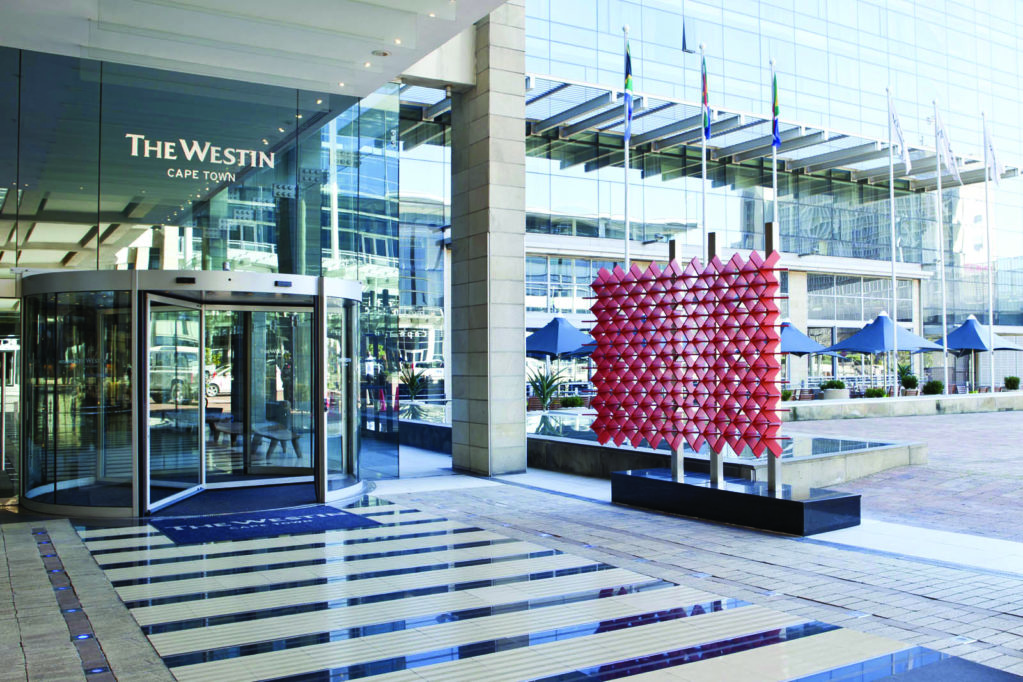With the new South African visa regulations, it’s not just the small B&Bs taking a hit – the high-end is feeling the effects too.
Foreigners who want to visit South Africa must apply for visas in person at South African embassies to have their biometric data captured. Residents of countries who require a short-stay visa for South Africa, and do not have a South African embassy in their country or city, will have to travel. Parents and guardians traveling with children must be in possession of an unabridged birth certificate.
The travel and tourism sector directly employs an estimated 679,500 people, is growing at a rate of 3% and contributes directly and indirectly to 9.4% of South Africa’s GDP. But Cape Town’s top-end is feeling the brunt of the legislature. The Westin, at R2,330 ($167) a night, is situated at the entrance of the Victoria & Alfred Waterfront; with views of Table Mountain, Lion’s Head and the entirety of Table Bay. Within walking distance from town it’s a firm favorite for tourists. It’s an easy sell but the five-star hotel has already taken a hit.
“At The Westin, we have started to see the ramifications that the new visa regulations is having on the tourism industry. Damage to the local tourism industry has already begun. We definitely anticipate a lull for the festive season this year. A further concern is the collateral damage that comes from this, such as the strain on the South African economy as well as job loss,” says Rob Kucera, FEDHASA (Federated Hospitality Association of South Africa) Cape Chairman and GM for The Westin Cape Town.
Occupancy rates have dropped significantly for The Westin. A study commissioned by the Tourism Business Council of South Africa said the tourism industry lost R886 million ($63 million) in direct spending last year because of the regulations and fears that Ebola might spread from West Africa. It’s estimated that South Africa is set to lose 100,000 tourists this year, translating into a R1.4-billion ($100 million) loss.
“We have changed our strategy to find business in other market segments and countries. We have taken a hit over our current winter period and the upcoming season will not be as good as last year,” says Kucera.
“There is no doubt that due to the new visa regulations we have challenging times ahead. As the industry body for the hospitality sector we are committed to encouraging these conversations for the benefit of the tourism industry and ultimately to safeguard the international tourist impression of South Africa as a holiday destination of choice,” he says.
South Africa’s President Jacob Zuma announced that a new inter-ministerial committee has been established to deal with the unintended consequences of the new travel visa regulations. The regulations are coming under fire – not only for the effects on the tourism industry but for the justification of them. The consequences come at a bad time for South Africa; the economy shrank by an unexpected 1.3% in the second quarter.
Tourism minister, Derek Hanekom, admits tourism has been hit. He said the number of visitors from China, one of South Africa’s major markets, has dropped by nearly 40% – and the numbers for other markets were similar.
In defense of the regulations, Home Affairs director-general Mkuseli Apleni briefed parliament. In his report, he claimed an estimated 30,000 children, 50% of whom are under the age of 14, are trafficked through South Africa every year, and that the new regulations would protect those children. The figure has since been dispelled by Africa Check and in parliament, it was stated that 23 children had been trafficked in a three-year period.
With too much room in the inn on all fronts, the tourism industry’s fears are mounting
